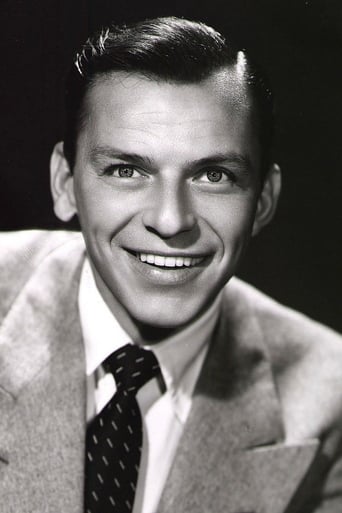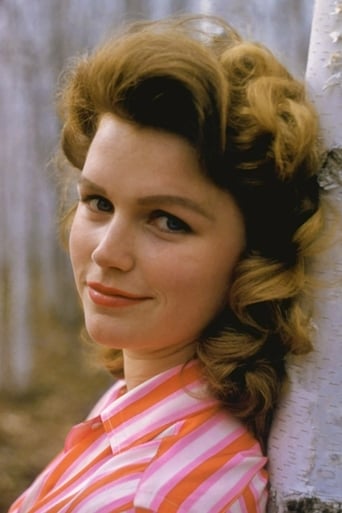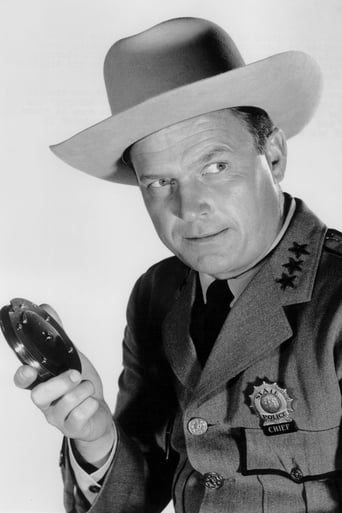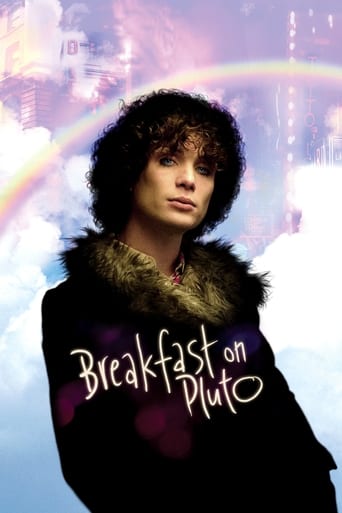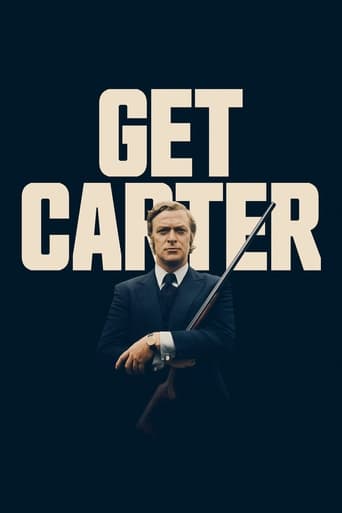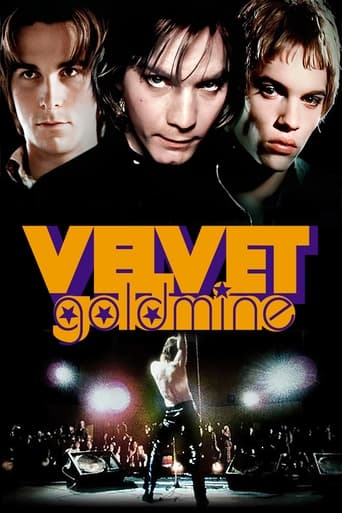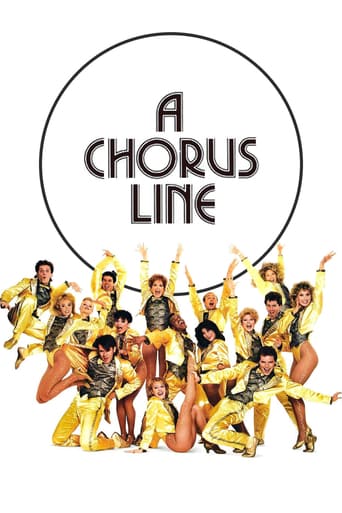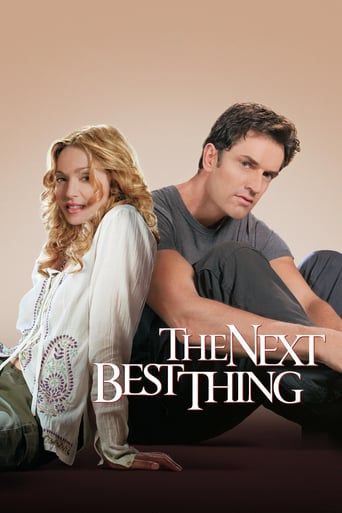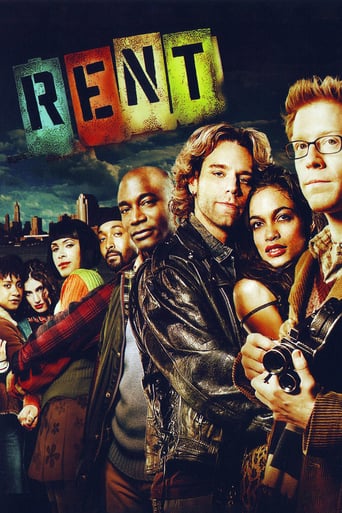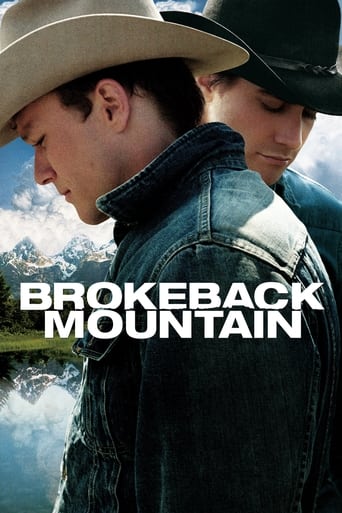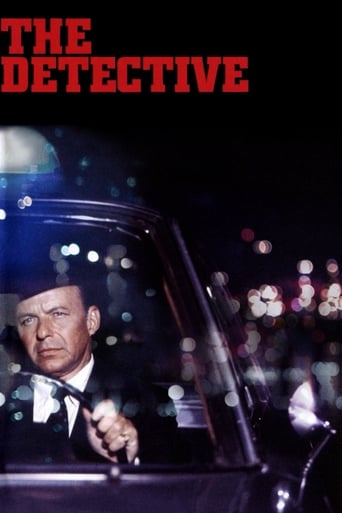
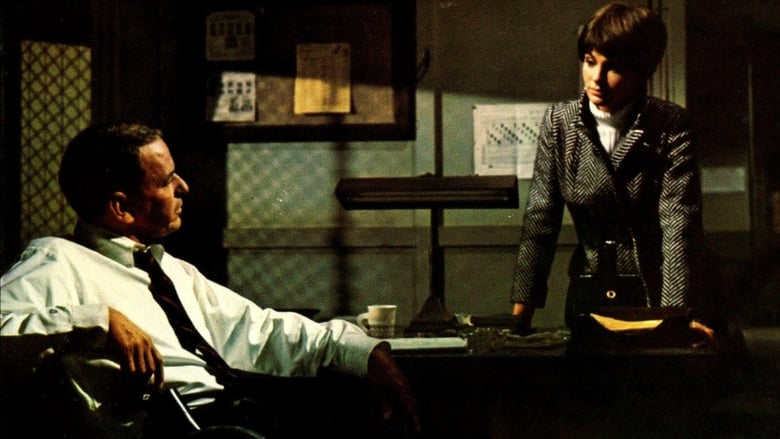
The Detective (1968)
Police detective Joe Leland investigates the murder of a gay man.
Watch Trailer
Cast


Similar titles
Reviews
There's no doubt that Frank Sinatra could act. With all his money and popularity as a singer, his political and other connections and interests, he just didn't seem to want to work too hard at it. So, his film portfolio includes just a few very good roles and movies – "From Here to Eternity," "The Manchurian Candidate," and this one, "The Detective." As a movie, it's not on the level of the other two; but Frank's role as Detective Joe Leland is on a par with his Private Angelo Maggio and Major Bennett Marco. This film was set in a time when police corruption, crooked cops and police brutality were at their peak in some of America's largest cities. Other movies would follow with these themes, and publicity grew as cities grappled with cleaning up the police forces and corrupt city administrations. Some later movies delve deeply into the feuding and infighting that developed between good and bad cops. The 1973 film, "Serpico" heads the list of great movies about exposing police and city corruption and cleaning up the forces. But, before then we have "The Detective," and Frank Sinatra's very good role of an honest and conscientious cop. This film covers crooked cops, police brutality, gay-bashing, infidelity, suicide, fraud, murder, mutilation and more. Other reviewers have noted that it provides a picture of the gay scene in the Big Apple at the time, and the general climate and treatment of gays by the police. The plot has some nice intrigue, but also some confusing pieces where the audience is left out of some connections. Perhaps those were left on the cutting floor in the film editing. Otherwise the story isn't particularly engaging. Mostly, we in the audience are meant to have some empathy for Joe in his struggles to be an honest cop. The rest of the cast all put in very good performances as well. Jack Klugman is an honest friend, Dave Schoenstein – the only one Joe can trust in the department. Ralph Meeker does the crooked copy very well as Curran. Lee Remick is OK as Joe's ex-wife, Karen; and a young Robert Duvall gives a great performance as the brutal cop, Nestor. At one point early in the film, a reporter is trying to get some information from Leland. The reporter says that he heard that Leland is the best detective in New York. He certainly was the best detective in this film. Overall, this is a good mystery and detective story. It's based a 1966 novel by the same title, written by Roderick Thorp.
Dated by its handling of the formerly taboo subject of homosexuality and further hampered by an overly sober script, nevertheless this Frank Sinatra neo-noir has a lot to commend itself.Adapted from a popular novel of the day by Abby Mann in a pre-Kojak assignment, it's difficult not to see Sinatra's Joe Leeming's battle-weary, incorruptible cop as a precursor to Mann's most famous invented character from the next decade. The plot too could have come from the TV show albeit with the utilisation of more adult themes, including the character of Sinatra's nymphomaniac wife (Lee Remick), the graphic depiction of the opening murder and execution of an innocent suspect, egged onto a false confession by a promotion-hungry Sinatra. This is one of the problems of the script, with Sinatra set up from the start as a down-to-earth workaday detective but with a social conscience of course. So Frank gets to soapbox a lot about the ghetto and poverty on the one hand and corruption and cover-ups in high places on the other. Sinatra manfully tries to carry off this heavy load on his own, but can't help but look awkward when cajoling the damning confession from his suspect or as if he's memorised some of his equally damning speeches against the powers that be. Credit him for taking on a modernist role at odds, I'd have said, with his family-entertainer background. There are a lot of big names in support, with Robert Duvall noteworthy as an over-zealous underling and Jack Klugman as Sinatra's trusted deputy. Sugar Ray Robinson has a fair old fight with his lines as an over-impressionable black colleague of Sinatra's, but I'm not sure I could award him the decision in the final reckoning. Smoothly and occasionally stylishly directed by Gordon Jenkins, the film is nonetheless stuck in a time-warp of its own creation and suffers accordingly, notwithstanding it generally has its heart in the right place.
Based on the 1966 novel by Roderick Thorp, THE DETECTIVE was among the highest grossing films of both 1968 and one of the most popular of Frank Sinatra's film career. At the time it was considered remarkably honest in its portrait of a no-nonsense cop who finds himself trapped between a series of compromises and his own sense of integrity. Today, however, it chiefly notable for its unintentional window onto 1960s homophobia.Joe Leland (Frank Sinatra) is a third generation New York City police officer who begins the film with two victories: in his private life, he has wooed and won a remarkably beautiful wife, Karen (Lee Remick); in his professional life, he is assigned to a particularly notorious murder case that he quickly solves and which results in a major promotion. But both explode in his face in particularly unsavory ways. Although flawless on the surface, Karen is a distinctly disturbed woman who shatters their marriage through a series of compulsive affairs. And although it seems solved, the case on which Joe's promotion rests may not be nearly as simple as every one thought at the time.The case involves the brutal murder of a gay man who is found with his head battered in and sexually mutilated--a circumstance that leads Joe and his co-workers to prowl 'known homosexual hangouts' such as gyms and the waterfront. In the process, the film creates a portrait of the gay community that says considerably less about the gay community than the way in which heterosexual America thought of it at the time. The gay men themselves are improbable, being pulled out of group gropes from the back of cargo trucks, flexing muscles in tawny-colored gyms, frequenting bars notable for satin and velvet, and lounging about in silk robes. They come in two basic varieties, victim and predator. They are weak and are routinely brutalized by both each other and the police, the latter of which positively delight in knocking them around.This is not particularly unusual for films of the 1960s and the 1970s; it is much the same portrait presented by such diverse films as ADVISE AND CONSENT and CRUISING. What is unusual is Joe's attitude toward them: unlike his co-workers, he dislikes seeing them mistreated and prefers to see them (and indeed all other suspects) accorded a certain basic respect as human beings. It was a very, very bold stance for a film to take at the time. Even so, it does not counterbalance the portrait itself, which is intrinsically demeaning, or the story, which ultimately pivots on a version of "gay panic"--a heterosexual myth used here with a slight spin.The chief grace of the film is the performances of Sinatra and Remick. Today Sinatra is best recalled as a singer, but he had some significant acting chops, and he proves more than able to over the shortcomings of the script. Lee Remick, a much-admired actress, is flawlessly cast as the perfidious wife Karen, a woman who superficial qualities conceal an unraveling personality. The supporting cast, which features Jacqueline Bissett, Jack Klugman, and Robert Duvall, is also quite fine. But the script is weak, the story choppy, the film is a shade too glossy for its subject--and its incredibly naive portrait of gay men tends to overpower everything.All films must be considered in the context of their eras, but even so a good film can transcend its era. THE DETECTIVE doesn't manage to do that: sometimes ridiculous to the point of being amusing, sometimes so grotesque that it becomes a bit embarrassing. All the same, it remains interesting primarily because it offers a window on what mainstream Americans of the 1960s thought homosexuals were like. The DVD offers the film in original widescreen format; the transfer, however, is merely acceptable. Recommended primarily to Sinatra fans and film historians interested in Hollywood's frequently off-the-wall portray of gay men.GFT, Amazon Reviewer
The nineteen fifties were a time of adaption for many police departments throughout the United States. The rubber hoses, the brutal interrogations, bright lights and smoke filled rooms were commonplace. So too were the results. Few guilty men escaped punishment and fewer still were the innocents who got away. During the next few decades, so much brutality became prevalent, a new force took on the cops. In this film, "The Detective" the audience witnesses the early seeds of Law Enforcement Officers and the evolution of Miranda rights. It is the story (written by Roderick Thorp) of an idealistic officer named Det. Sgt. Joe Leland (Frank Sinatra). He is the son of a policeman and believes in his work. The victim is the son of a prominent politician, who has been is brutally murdered. What Leland discovers in his investigation is far more than the murdered man's sexual preference, but rather the lengths others will go to cover it up. With Dave Schoenstein (Jack Klugman) as his partner, they inadvertently discover a powerful and ruthless organization called 'Rainbo'. Key to the murder, a puzzling suicide and to Rainbo are Dr. Wendell Roberts (Lloyd Bochner) and William Windom. If you'll look closely, you see a young Robert Duvall and Tony Musante. The importance of this film are the taboo subjects explored as the investigation continues. Unlike today, such subjects did not warrant prominence and yet this film offers them up raw and unfettered. Lee Remick gives a stirring performance as Karen Leland. All in all, an excellent film from a changing time. ****


